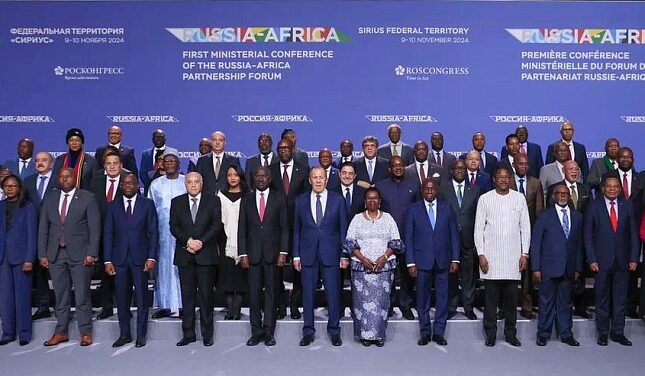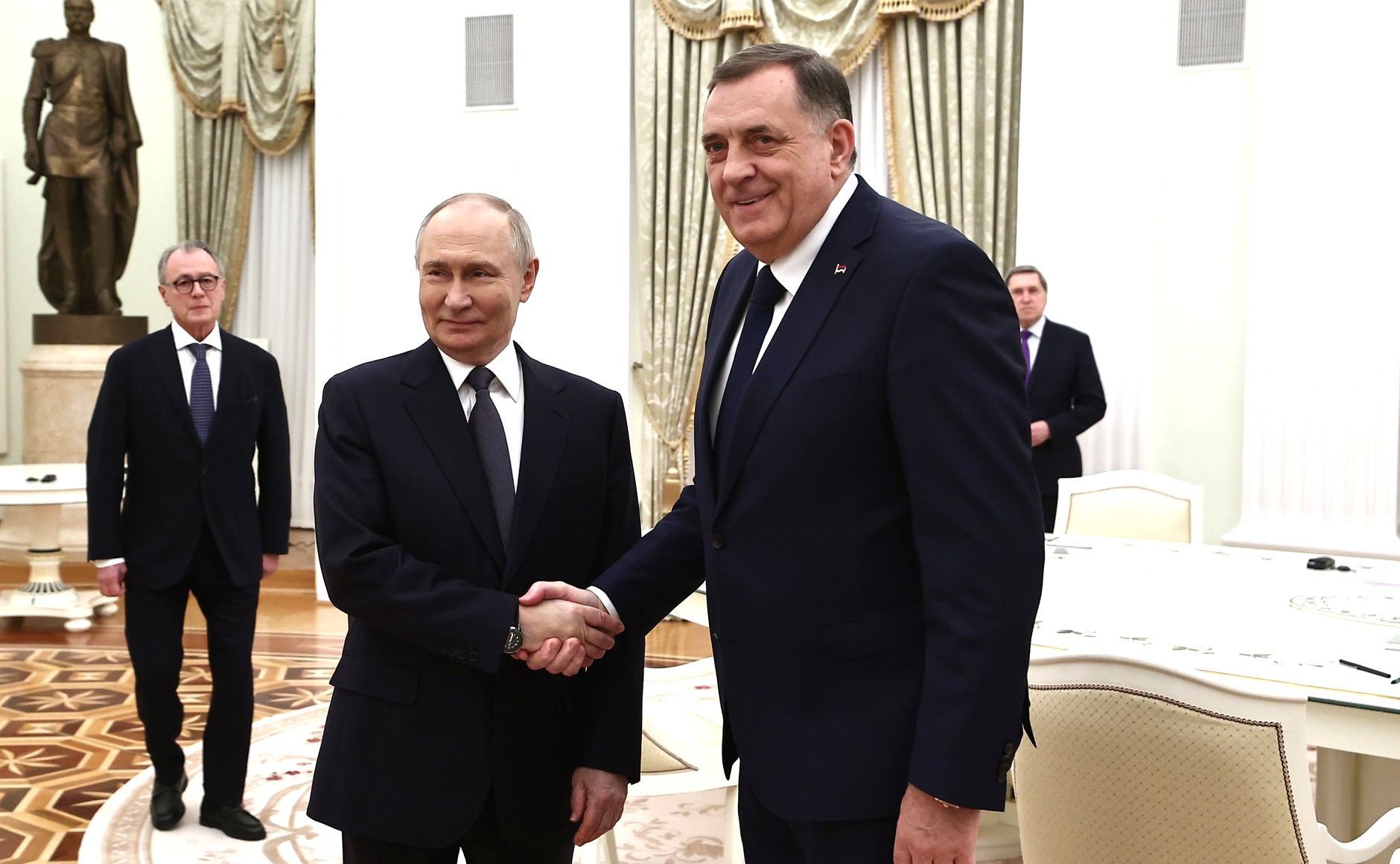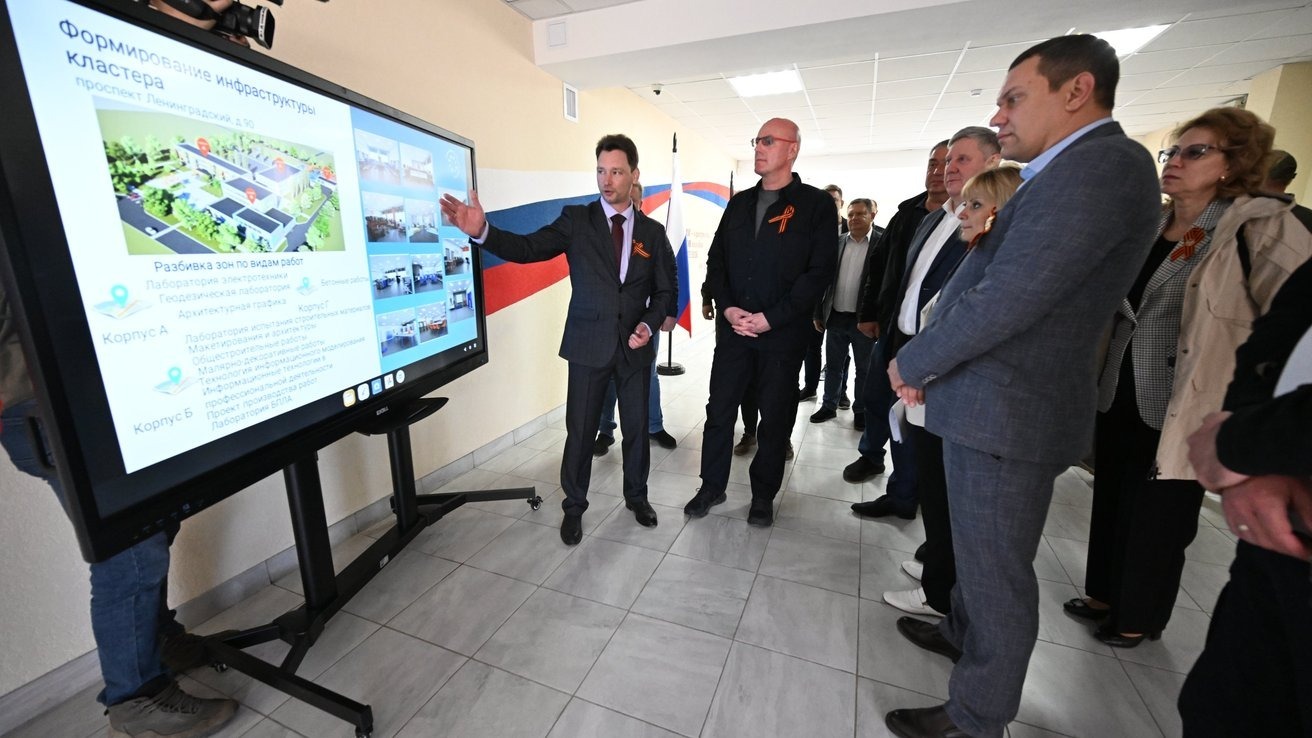
Russia Expands Foothold in East Africa
Russia Expands Foothold in East Africa
Executive Summary:
- Russian Foreign Minister Sergei Lavrov announced plans in February to increase Russian involvement in Africa, as Russia’s Deputy Minister of Economic Development, Dmitry Volvach, expects that Russian-African trade will double in the next five years.
- Russia is expanding its influence in Africa through rapidly growing trade, expected to double in five years, alongside intensified military engagement, including arms deals, troop deployments, and a planned naval base in Sudan.
- Russia’s deepening presence in Africa reflects a strategic effort to fill geopolitical and diplomatic gaps and counter competition from the People’s Republic of China through sustained investment, partnership, and regional engagement.
On February 19, Russian Foreign Minister Sergei Lavrov provided an overview of Russian foreign policy to the State Duma in Moscow, telling legislators that after a period of disengagement following the 1991 collapse of the Soviet Union, Russia is “re-engaging” with Africa. Russia hosted the inaugural Russia-Africa Partnership Forum with more than 1,500 delegates and state officials convening in Sochi in November 2024 (Russian Ministry of Foreign Affairs, November 10, 2024). The Forum was convened pursuant to the second Russia-Africa Summit in 2023 in St. Petersburg, which focused on economic and humanitarian cooperation (Ministry of Foreign Affairs of the Russian Federation, February 19; Russia-Africa, accessed April 28). The Soviet Union had a long-standing interest in East Africa, with close partners in Somalia and Ethiopia (Russian Ministry of Foreign Affairs, May 6, 1977, August 10, 2007). As post-Soviet Russia revives its presence in Africa, its efforts have broadened to include Eritrea, Sudan, South Sudan, Kenya, and Egypt. In 2024, Russian troops were deployed to Burkina Faso and Mali, and at least four African states began negotiating the construction of nuclear power plants using Russian technology (see EDM, March 18, 2024; Russian Council for International Affairs, February 10).
Russia’s revived East Africa policies have a prominent military component, including an arrangement with Sudan to establish a naval base at Port Sudan on its Red Sea coast (see EDM, November 14, 2023, March 6). On February 12, Sudanese Foreign Minister Ali Youssef Ahmed al-Sharif confirmed the agreement during a press conference in Moscow, stating that there are no obstacles to its implementation (RBC, February 12). The base will solidify Russia’s strategic reach across Africa and the Middle East by offering direct access to the Red Sea, a chokepoint that links the eastern Mediterranean to the Indian Ocean via the Suez Canal (see EDM, March 6).
One important aspect of relationships between Russia and African nations is mutual diplomatic support. According to Lavrov, Russia is opening an embassy in the Comoros islands, a small but geopolitically important state in the Indian Ocean between northern Madagascar and northern Mozambique (TASS, February 19). The President of the Comoros, Azali Assoumani, was one of the originators of the African initiative for a diplomatic solution to Russia’s war against Ukraine (President of Russia, July 28, 2023).
Russia has aggressively expanded its influence in Africa through arms sales, Wagner Group deployments, and resource exploitation deals (see EDM, March 12, July 31, 2024; see Jamestown Perspectives, February 3). Beyond the Comoros islands, Russia intends to open embassies in the Gambia, Liberia, and Togo in the next two years. Lavrov added, “The embassies in Niger and Sierra Leone will resume their activities in the near future. And our country’s embassy will open for the first time in South Sudan” (Gazeta.ru, February 4).
The Russian Federation is employing citizens of African countries to contribute to its war against Ukraine. In 2023, after purchasing Shahed drones from Iran, Russia began producing the drones at a factory in Tatarstan’s Yelabuga special economic zone (see EDM, March 6, 2023, March 4, April 11, September 18, 2024). Russian officials hired women from Uganda to work at Yelabuga for triple typical Ugandan salaries. The Kremlin hired 1,000 Ugandan women in 2023, followed by an additional 1,000 in 2024 (The Moscow Times, May 28, 2024). The program has been so successful that Yelabuga now has three factories—Bespilotnye Sistemy, Aviatest Aero, and Albatros—focused on assembling drones and producing their components (Naked Science, March 31). Recently, Interpol launched an investigation into “Alabuga Start” for human trafficking from Botswana. “Alabuga Start” is an international program advertised to “ambitious young women aged 16 to 22 years” who want to create a “successful career” in Russia, specifically the Yelabuga special economic zone (Alabuga Start, accessed April 28). A representative of the organization claims that the women recruited into the program do not make “bombs or anything like that,” despite the Yelabuga special economic zone being a critical location for Russia’s drone production (The Moscow Times, April 24).
Russia’s Deputy Minister of Economic Development, Dmitry Volvach, expects Russian-African trade to double in the next five years. Volvach announced that from January to August 2024, Russian-African bilateral trade increased by 18.5 percent compared to the same period a year earlier, reaching a total of $18.6 billion (Kommersant, March 10). In 2024, Russian agricultural exports to Africa exceeded $7 billion, with Egypt as the largest buyer (Agroexport, accessed April 24). The agricultural focus in bilateral trade led to a surge of interest from African students in studying agronomy at Russian universities. According to Rossotrudnichestvo, Russia’s agency for administering foreign aid and cultural exchanges, from 2020 to 2025, applications to Russian universities from African students hoping to study agronomy increased by 500 percent. More than 1,600 students from 45 out of the 54 African countries currently study agriculture at Russian educational institutions (Izvestiya, April 4).
Lavrov acknowledged the impact of recent geopolitical changes in relations with African countries in his February address to the Duma. According to him, Russia’s African initiatives face competition specifically from the People’s Republic of China. The PRC has made efforts to reinforce ideological solidarity against the West and its development model across Africa through increased political and economic engagement (see China Brief, September 20, 2024). Lavrov noted that the Foreign Ministry “created a new department, a second African Department” to address Africa’s growing geopolitical importance (Ministry of Foreign Affairs of the Russian Federation, February 19). The Kremlin is taking every opportunity to fill any diplomatic, military, economic, and cultural vacuums in Africa with embassies reopening, trade surging, and military ties strengthening. Russia’s commitment to becoming a central partner with African countries represents a broader ambition to shape the continent’s future and its geopolitical alignment in Moscow’s favor.


